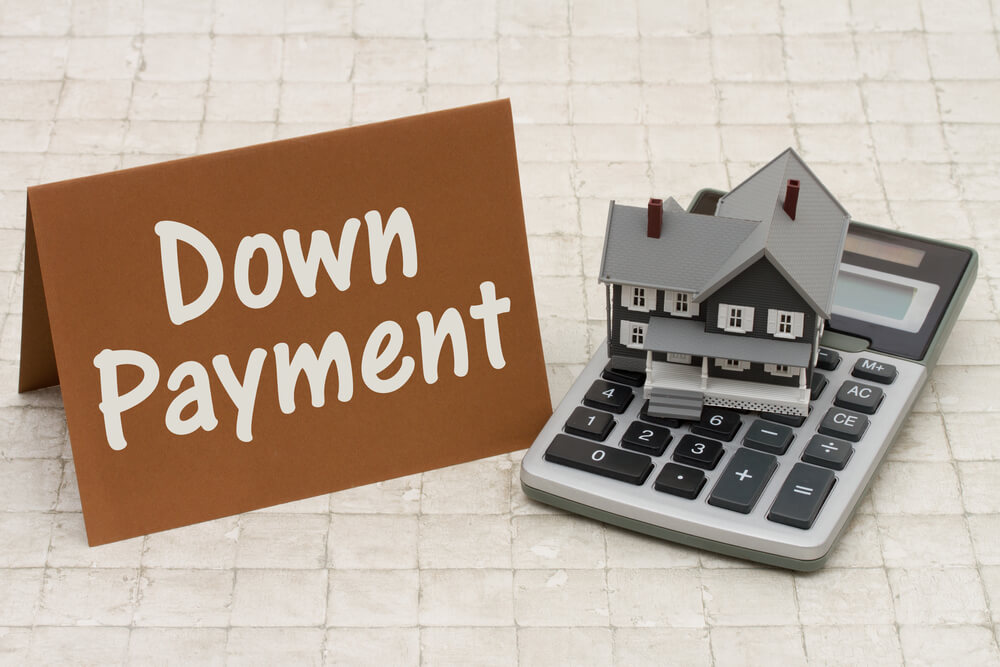
How to Buy a House with Bad Credit?
One of the most significant milestones in a person’s life is when he buys a home. It’s a tangible symbol of your financial stability and independence.
But what happens if your credit score is bad? Would you be able to purchase a new home? The answer is yes, but it could be little bit challenging.
Therefore, in today’s blog post, we have discussed various ways you can opt to increase your chances of getting a home with bad credit.
All the procedures and steps are easy to follow and can guarantee you find a home without waiting for months.
So, let’s dig in…
How to Buy a House with Bad Credit?

Where finding the right property seems the most difficult task while home purchasing, bad credit can make things worse.
But we are not saying you can’t buy a home when your credit is bad. You can definitely get one for yourself. However, it’s better to opt for more effective ways, such as improving your credit score.
With that said, let’s find ways you can adapt to make your credit score better and more credible to find a decent property.
Note: Improving your credit history and score is important before you buy a home. Because when you visit the market with an extremely low credit score, you’ll have difficulty approving your loan application and have to pay increased interest rates. Therefore, keep yourself ahead to qualify for a home loan without burden.
Checking Errors and Winning Credit Scores
If you’re considering buying a home but have bad credit, it’s important to start by checking your credit report for errors or misleading information. Lenders will look closely at all your documentation before approving loans, so you want to ensure everything is accurate.
You can find details about your credit report from a reputable government resource and carefully review it for mistakes.
Once you’ve reviewed your credit report, contact your lender to fix any incorrect liens or missed payments. By doing this, you can improve your credit score quickly and significantly, increasing your chances of getting approved for a home loan.
Optimizing Your Borrower Profile
Now you may wonder, if your credit reports come out all correct and authentic; how would you increase the chances of mortgage approval for buying a home with bad credit?
There’s another thing you can do, i.e., optimize your profile with accurate information. Let’s have a look at a few of them;
Show stability in employment and income: Lenders prefer to observe a stable income stream and a long-term employment history as evidence of your financial stability. This gives them confidence that you’ll be able to make your mortgage payments.
Provide a large down payment: A large down payment shows lenders that you’re serious about buying a house and have some skin in the game. It also reduces the amount you need to borrow, making it less risky for the lender.
Get a co-signer: If you have a family member or friend with good credit willing to cosign for your mortgage, it can help increase your chances of getting approved. A co-signer guarantees the loan, meaning they are responsible for the mortgage if you can’t make the payments.
Show proof of assets: Having assets, such as savings or investments, can help offset your bad credit. Lenders want assurance that you have a cushion of savings in an emergency.
Finding the Right Home Loans for Bad Credit

Apart from traditional banks, we have listed four options to apply for a home loan with a bad credit score.
USDA Loans: These are backed by the U.S. Agricultural Department and are designed for people living in rural areas with low income. These loans don’t require a down payment but a minimum 580 credit score is necessary before purchasing a home.
FHA Loans: The Federal Housing Administration issues FHA loans and has more lenient credit requirements. The FHA allows borrowers to get a loan if they have a minimum of 500 credit score with a 3.5% down payment. Bad credit borrowers can also qualify for these loans because they are easier to qualify for than traditional mortgages.
VA Loans: Veterans Affairs Department offers special loans for veterans and active-duty military personnel. These loans have more flexible credit requirements. They also don’t require a down payment. You might easily qualify for a VA loan if you are a veteran with bad credit or active duty in the military.
Conventional loans: These are backed by the government’s Federal Housing Finance Agency (FHFA). They set the guidelines for conventional loans, including the minimum credit score requirement of 620 for bad credit borrowers. This requirement is in place to ensure that borrowers can repay their loans and that the loan is less risky for the lender.
Approaching a Lender for Pre-approval
It might seem unnecessary but making sure all the documents meet the criteria for a mortgage in your state is important. Therefore, before sending the final approval application, you should connect with a mortgage lender.
Getting assistance from a lender prior to authority processing can help in buying a home with bad credit in several ways:
Establishing a budget: Your lender will review your credit history, income, and debts when determining your borrowing capacity. This way, you can establish a budget and determine what you can afford to buy a home.
Improving bargaining power: When you have a pre-approval letter, you can show sellers that you are a serious buyer who has been approved for a loan. Moreover, having more bargaining power can lead to a lower home purchase price.
Identifying potential roadblocks: A lender can identify any potential roadblocks to getting a loan, such as high debt-to-income ratio and low credit score. So, you can improve your credit or reduce your debt before applying for a loan.
Finding the right loan program: As we discussed a few loan options, your lender will help you find the loan program that best suits your needs. Ultimately, you can qualify for a loan with more favorable terms, such as a reduced interest rate or down payment.
Saving time and effort: By getting pre-approved, you can avoid looking at homes that are out of your price range saving you time and effort in the home-buying process.
Keep Check and Balance of Your Credit score

There are two situations involved in this step that can prevent you from building up your credit score and decrease the likelihood of obtaining a home loan or mortgage. Thus, if you can’t find ways to increase your credit score, you can always choose the second option, i.e., avoiding bad credit ‘habits’
It may seem unavoidable, but keeping track of your credit usage is essential for a smooth loan application process. For instance, most lenders will check your credit before and after approving your application. Therefore, if you continually use your credit for things like auto loans or household expenses, you may end up with a lower credit score.
To avoid mistakes that can negatively impact your credit and decrease your chances of getting a new home, consider the following tips:
Avoid Signing for New Credit Accounts: Opening new credit accounts and applying for multiple loans or credit cards increases your debt-to-income ratio.
Subsequently, lenders identify the DTI when you apply for a mortgage or home loan; if it’s higher, the chances of getting a new mortgage loan becomes impossible.
Show Yourself as an Authorized User: If you request to be added as an authorized user on someone else’s credit account, such as a family member’s, the account’s history will be included in your credit report.
This way, your credit report will also include your family members’ payment history, credit utilization, and account balance. If he/she has a good credit history, with on-time payments and low credit utilization, it can help to boost your credit score.
Are You Ready to Buy a Home with Bad Credit?
While we summarize everything, you need to understand that your credit limit doesn’t define whether you can qualify for home purchasing.
For instance, you might get approval with a 500 credit score and not with 800 or above credit scores.
Therefore, it all depends on how you’ve maintained your borrower profile, removing errors from your credit report, pre-approval from the lender, and keeping track of your credit score.
So, double-check all the necessary procedures before buying a home with bad credit instead of focusing on one thing.
Related: How to Buy a House with Low Income?
